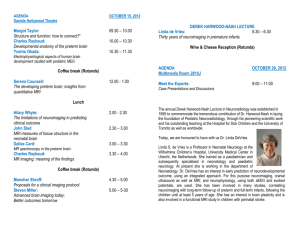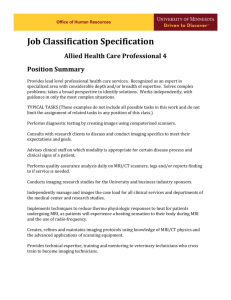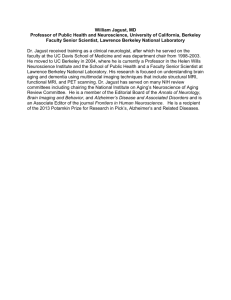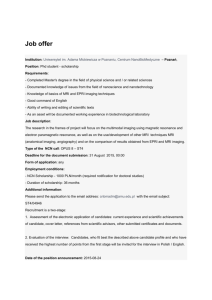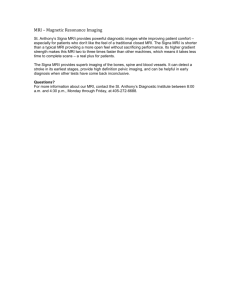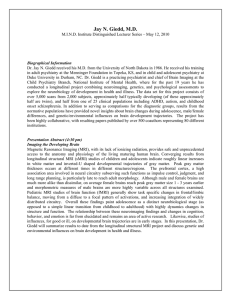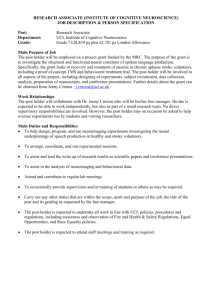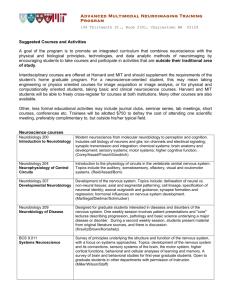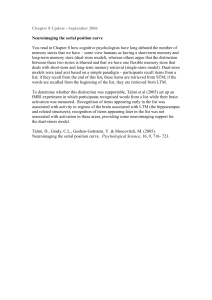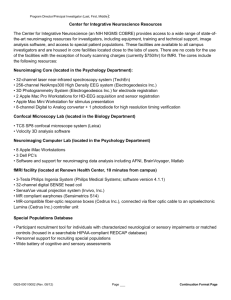clinical neuroscience research - Centre of Clinical Research
advertisement
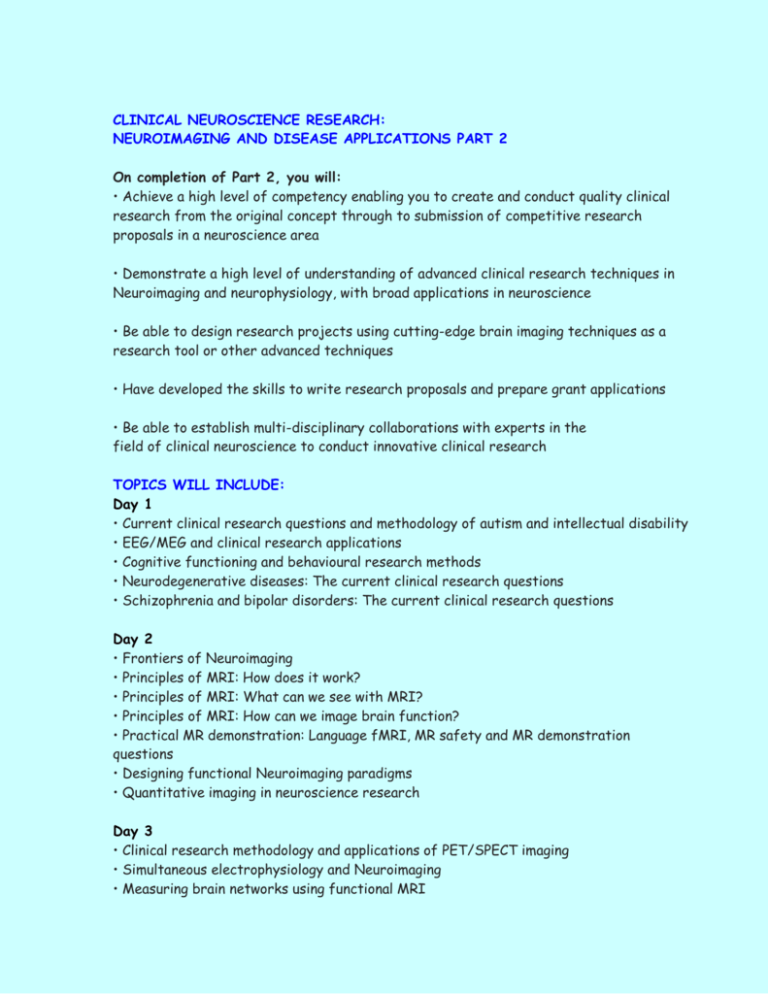
CLINICAL NEUROSCIENCE RESEARCH: NEUROIMAGING AND DISEASE APPLICATIONS PART 2 On completion of Part 2, you will: • Achieve a high level of competency enabling you to create and conduct quality clinical research from the original concept through to submission of competitive research proposals in a neuroscience area • Demonstrate a high level of understanding of advanced clinical research techniques in Neuroimaging and neurophysiology, with broad applications in neuroscience • Be able to design research projects using cutting-edge brain imaging techniques as a research tool or other advanced techniques • Have developed the skills to write research proposals and prepare grant applications • Be able to establish multi-disciplinary collaborations with experts in the field of clinical neuroscience to conduct innovative clinical research TOPICS WILL INCLUDE: Day 1 • Current clinical research questions and methodology of autism and intellectual disability • EEG/MEG and clinical research applications • Cognitive functioning and behavioural research methods • Neurodegenerative diseases: The current clinical research questions • Schizophrenia and bipolar disorders: The current clinical research questions Day 2 • Frontiers of Neuroimaging • Principles of MRI: How does it work? • Principles of MRI: What can we see with MRI? • Principles of MRI: How can we image brain function? • Practical MR demonstration: Language fMRI, MR safety and MR demonstration questions • Designing functional Neuroimaging paradigms • Quantitative imaging in neuroscience research Day 3 • Clinical research methodology and applications of PET/SPECT imaging • Simultaneous electrophysiology and Neuroimaging • Measuring brain networks using functional MRI • Diffusion imaging – How does it work and what can it tell us? • Measuring tracts with diffusion fibre tracking • Applying various imaging research methodologies to study disease: applications to stroke • Measuring blood perfusion through brain tissue Day 4 • Research plan presentations • Grantmanship workshop Award course assessment: A short oral presentation of a proposed research plan (30 percent), a comprehensive clinical neuroscience project proposal formatted as a grant submission, including potential multi-disciplinary collaborations and drawing on the course content (and previous professional experience, if relevant) (3,000 words) (70 percent).

